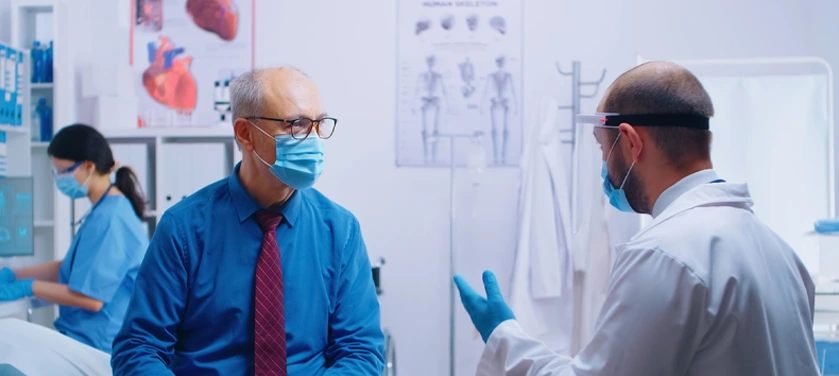Top Questions to Ask Your Nephrologist During Your First Appointment
According to NDTV reports, the number of Indians suffering from chronic kidney disorders has doubled in the past 15 years. These statistics demonstrate the importance of kidney health and consulting a nephrologist (one who treats the disease of kidney) to evaluate kidneys and ensure that you are in good health. However, a doctor can only provide the best feasible solutions and recommendations when he knows as much information about the patient. To make the most out of your next consultation with a kidney disease doctor, read this blog till the very end. This blog is your ultimate guide that consists of top questions to ask your nephrologist during your first appointment. It also discusses various other important things that you should know to keep your kidneys healthy in the long run.
Various problems that kidney diseases can cause
- Chronic Kidney Disease (CKD): Progressive loss of kidney function over time that leads to waste buildup in the body.
- End-stage renal Disease (ESRD): Severe chronic kidney disorder that requires immediate dialysis or a kidney transplant.
- Hypertension: Kidney dysfunction leads to high blood pressure, which in turn can further damage the kidneys.
- Anaemia: Reduced production of erythropoietin by the kidneys leads to a shortage of red blood cells.
- Bone Disease: An imbalance in calcium and phosphorus levels results in weakened bones and increased fracture risk.
- Cardiovascular Disease: Increased risk of heart disease and stroke due to high blood pressure and other factors.
- Electrolyte Imbalance: Abnormal levels of potassium, calcium, and other electrolytes cause muscle cramps, weakness, and other symptoms.
- Fluid Retention: Swelling in the legs, ankles, feet, and hands due to fluid buildup.
- Uremia: Accumulation of waste products in the blood, leads to nausea, vomiting, fatigue, and confusion.
- Urinary Tract Infections (UTIs): Increased risk of infections due to poor kidney function.
Symptoms to look out for, what is the first sign of kidney failure?
It is important to note that, most people may not experience any symptoms during the initial stages of kidney disorders. Henceforth, it is very important to consult a nephrologist to analyze the health of your kidneys and talk about kidney disease. Pay attention to these symptoms, if you are a suspect:
- Fatigue, weakness
- Difficult, painful urination
- Foamy urine
- Pink, dark urine or blood in the urine
- Increased thirst
- Increased urge to urinate
- Puffy eyes
- Swollen face, hands, abdomen, ankles, feet
- Nausea
- Trouble concentrating
The main risk factors that contribute to kidney damage
- Diabetes: High blood sugar levels damage blood vessels inside the kidneys.
- High blood pressure: High blood pressure can also cause damage to the internal blood vessels.
- Heart disease: Reduced blood flow to the kidneys due to multiple heart diseases can impair kidney function.
- Family history of kidney diseases: If your family close or far related has experienced any sort of kidney disease, that may pass on to you.
- Obesity: Over-weight leads to higher blood pressure and diabetes, both of which are major risk factors for kidney diseases.
- Smoking: Smoking damages the blood vessels and reduces the blood flow to the kidney which can lead to multiple disorders.
- Autoimmune diseases: Many autoimmune diseases can cause inflammation in the kidneys affecting their functionality and leading to kidney disorders.
- Certain medications: Exposure to strong drugs like NSAIDs regularly can damage the kidneys in the long run.
The questionnaire
1. What specific lifestyle changes can I make to improve my kidney health?
2. How will my other health conditions, like diabetes or high blood pressure, affect my kidneys?
3. Can you mention the latest treatment options available for my kidney disease that are safe and effective?
4. Can you explain my lab results in detail, especially the terms GFR and creatinine levels?
5. What dietary changes should I make to support my kidney health, and can you refer me to a renal dietitian?
6. Are there any new medications or supplements I should consider or avoid?
7. How frequently should I check my kidney function, and which tests should I consider?
Why: Regular monitoring is essential for managing kidney disease, and you need to know what to expect, the frequency of your visits and the tests.




